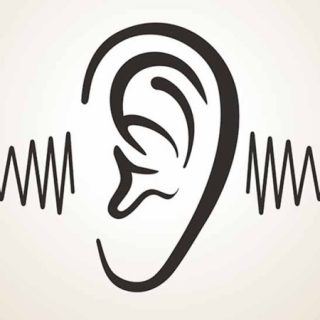Have you ever experienced a great outburst of anger? What led to your anger? How did you react? What was the outcome of your reaction?
Anger, as we all know, is inevitable. It is a natural phenomenon which, must occur in our day-to-day lives. We are all different in our outlook and expectations of the people we interact with. Inevitably, we get angry for different reasons.
But What Really Is Anger?
Cambridge Dictionaries Online defines anger as “a strong feeling that makes you want to hurt someone or be unpleasant because of something unfair or unkind that has happened.
it’ns important to understand anger symptoms, and the causes and effects, if you suspect you are, or someone you know is, suffering from an anger disorder.
Anger Disorder And Types
Anger disorder is a behavioral disorder characterized by explosive outbursts of anger, often to the point of rage. Also, the anger outburst is disproportionately more pronounced in comparison to the situation that instigated it. It presents as impulsive screaming triggered by relatively inconsequential events.
Individuals who have trouble controlling anger or who experience anger outside of a normal emotional scope can present with different types of anger disorders. Some of the more common types include:
• Chronic anger: This is prolonged and can impact the immune system. It is also the cause of other mental disorders.
• Passive anger: This doesn’t always come across as anger, it can be difficult to identify.
• Overwhelmed anger: This is caused by life demands that are too much for an individual to cope with.
• Self-inflicted anger: This is directed towards the self and may be caused by feelings of guilt.
• Judgmental anger: This is directed towards others and may come with feelings of resentment.
• Volatile anger: This sometimes involves spontaneous bouts of excessive or violent anger.
Causes of Anger
A leading cause of anger is a person’s environment. Stress, financial issues, abuse, poor social or familial situations, and overwhelming requirement on your time and energy can all contribute to the build up of anger. As with disorders such as alcoholism, anger issues may be more prevalent in individuals who were raised by parents with the same disorder. Genetics and your body’s ability to deal with certain chemicals and hormones also play a role in how you deal with anger. If your brain doesn’t react normally to serotonin, you might find it more difficult to manage your emotions.
Effects of Anger
Unresolved anger issues leads to anxiety which can have long-term effect on your life. Immediate effect of anxiety might include dizziness, rapid breathing, nausea, muscle pain, muscle tension, headaches and problems with concentration and memory. Such symptoms can make it difficult to perform routine tasks and can add to generalized anger about life.
Long term anxiety can pose dangerous risks to your physical and emotional states. Individuals who suffer from long bouts of anxiety can be at greater risk of suffering stroke. Serious memory loss, chronic sleep disorders and relationship issues can also develop. Before your anger and anxiety wreak havoc on your entire life, find out what you can do to stop it.
Managing Anger
Keeping your temper in check can be challenging. Below are 10 anger management tips which, can help you put your anger in control:
Think before you speak. In the heat of the moment it is easy to say something you’ll later regret. Take a few moments to collect your thoughts before saying anything, and allow others involved in the situation to do the same.
Once you are calm, express your anger. As soon as you are thinking clearly, express your frustration in an assertive but non-confrontational way. State your concerns and needs clearly and directly, without hurting others or trying to control them.
Get some exercise. Physical activities can help reduce stress that can cause you to become angry. If you feel your anger escalating, go for a brisk walk or run, or spend some time doing other enjoyable physical activities.
Take a timeout. Timeouts aren’t just for kids. Give yourself short breaks during times of the day that tend to be stressful. A few moments of quiet time might help you feel better prepared to handle what’s ahead without getting irritated or angry.
Identify possible solutions. Instead of focusing on what made you mad, work on resolving the issue at hand. Remind yourself that anger won’t fix anything, but might only make it worse.
Stick with ‘I’ statements. To avoid criticizing or placing blame on others, which might only increase tension. Use ‘I’ statements to describe the problem. Be respectful and specific. For example, say “I’m upset that you left the table without offering to help with the dishes” instead of, “You never do any house work.”
.Don’t hold a grudge. Forgiveness is a powerful tool. If you allow anger and other negative feelings to crowd out positive feelings, you might find yourself swallowed up by your own bitterness or sense of injustice. But if you can forgive someone who angered you, you might both learn from the situation. It’s unrealistic to expect everyone to behave exactly as you want at all times.
Use humour to release tension. Lightening up can help diffuse tension. Use humour to help you face what’s making you angry, and possibly any unrealistic expectations you have for how things should go. Avoid sarcasm. It can hurt feelings and make things worse.
Practice relaxation skills. When your temper flares, put relaxation skills to work. Practice deep breathing exercises. Imagine a relaxing scene, or repeat a calming word or phrase such as, “Take it easy”. You might also listen to music, write in a journal, or do a few Yoga poses, whatever it takes to encourage relaxation.
Know when to seek help. Learning to control anger is a challenge for everyone at times. Consider seeking help for anger issues if your anger seems out of control; For example, when you do things you regret or hurt those around you.
Anger is deadly. It can lead to the loss of lives, property and even insanity in some individuals. So it’s up to us to control anger in order to live safe and happy lives.
References
www.counselling.directory.org.uk/childrenstats.html
www.psychguides.com/guides/anger-symptoms-causes-and-effects/
www.mayoclinic/health…/adult…/angermanagement/art-20045434
https://www.google.com.ng/webhp?sourceid=chrome-instant&ion=1&espv=2&ie=UTF-8\q=WHAT+IS+ANGER








You must be logged in to post a comment.